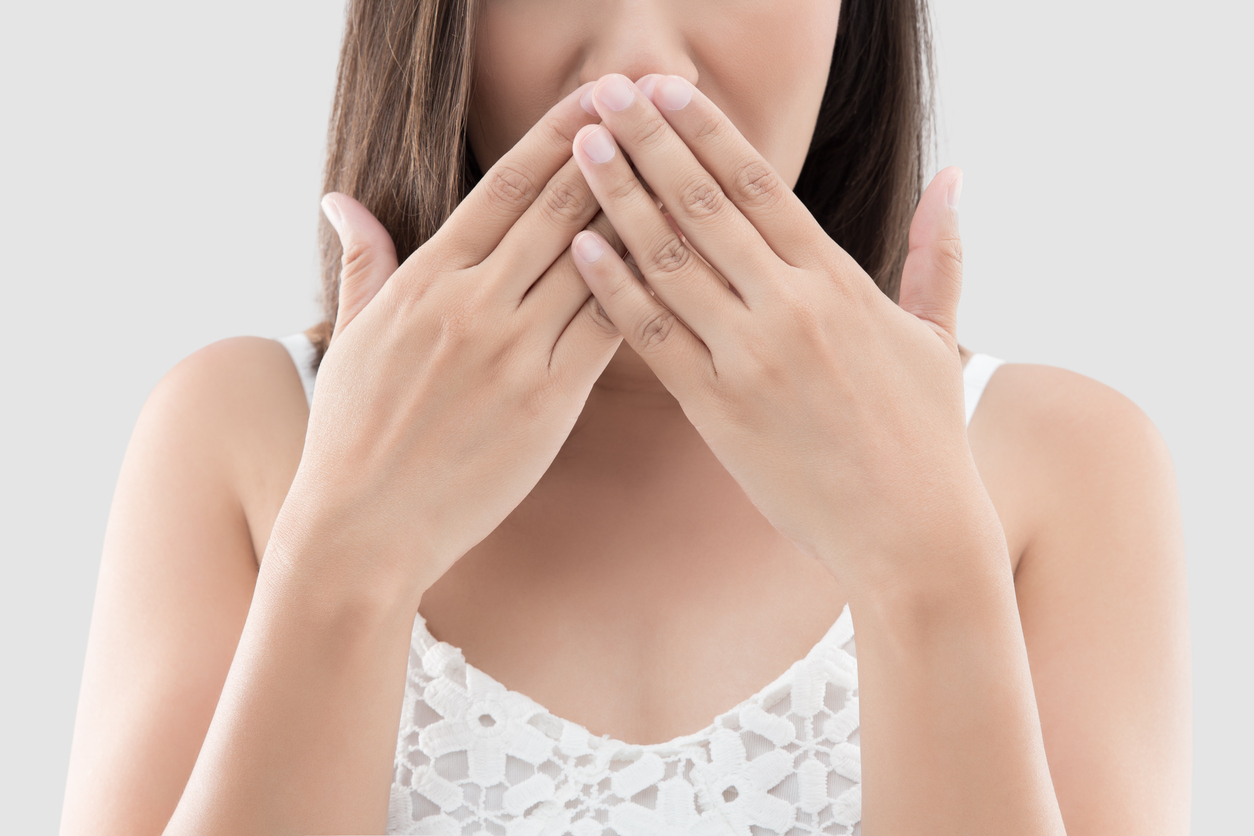Halitosis, oral malodor, or plain old bad breath… It doesn’t matter what you call it, it is still unpleasant for you and everyone within a few feet of you. It makes sense that you would do everything in your power to make it go away. Unfortunately, it’s not always as simple as just brushing your teeth and swishing a little mouth wash around. What do you do when bad breath won’t go away?
Get in touch with your Dentist in Irvine, OC Dental Specialists today to solve the puzzle of bad breath once and for all.
What Causes Bad Breath?
According to Harvard Medical, approximately 30% of the United States population complains of some level of halitosis, so even if you have it, don’t be embarrassed. It’s you and more than 100 million other people in this country alone.
Most cases of bad breath are pretty straightforward. They’re caused by bacteria from debris left on your teeth, gums, and tongue. If you have periodontal disease, then the smell produced by bacteria on the surface is supplemented by the bacteria that is also actively damaging your teeth and gums.
In addition to oral hygiene and oral health issues, there are also several non-oral diseases that can cause bad breath. Tonsillitis, most respiratory infections, and even some gastrointestinal conditions, such as acid reflux can also result in halitosis. In fact, the sour-milk smell is one of the most easily identifiable symptoms of patients with severe acid reflux.
Addressing the Causes of Halitosis
It is usually rare and temporary that some health conditions result in bad breath without a lapse in oral hygiene. Medical News Today’s professionally reviewed article notes that the vast majority of halitosis is caused by bacteria in the oral cavity. Fortunately, there are a few easy ways to up your game when bad breath won’t go away.
DON’T skip your bi-annual visits to your dentist
As much as you might not enjoy them, keeping up with your regular dental visits is one of the best ways to help when bad breath won’t go away. By going in for your regular, scheduled cleanings you’ll remove built-up plaque and keep periodontal disease at bay. If you’ve already developed gum disease, then your Irvine periodontist at O.C. Dental Specialists will be able to take you step by step through the recovery process.
DO use a tongue scraper
The Cleveland Clinic suggests adding tongue scraping into your daily hygiene routine, as bacteria residing on your tongue are one of the dominant causes of bad breath. You can start by simply brushing your tongue with your toothbrush, but, ultimately, investing a few bucks in a plastic tongue scraper is a more efficient way of removing bad bacteria.
DO brush after every meal
Most of us scrape by brushing twice a day, but we really should be brushing directly after we eat. Even if it’s just a snack, letting debris sit on your teeth for hours in between brushings allows the sugars in your food to feed the bacteria in your mouth, resulting in the creation of harmful acids that begin to degrade your teeth while also producing the unpleasant smells you’re trying to keep at bay.
DO floss
Mouth wash can be a great tool for reaching the little nooks and crannies around your mouth. However, it doesn’t have the physical power of floss or a water flosser. Whichever method you choose, it is important that you floss once a day to remove debris and bacteria from in between your teeth and at the gum line. It may not seem like much, but your lack of flossing could be largely responsible for your bad breath.
Keeping Bad Breath Back
For most people, keeping your mouth clean is key when bad breath won’t go away. There are some extenuated circumstances, and in those cases, it is important to have the root condition treated. If you have a gastrointestinal condition causing your bad breath, there is also the potential that these acids are also damaging your oral health. For everyone else, it may seem daunting, but regular, healthy dental practices keep your breath fresh and your teeth white.

